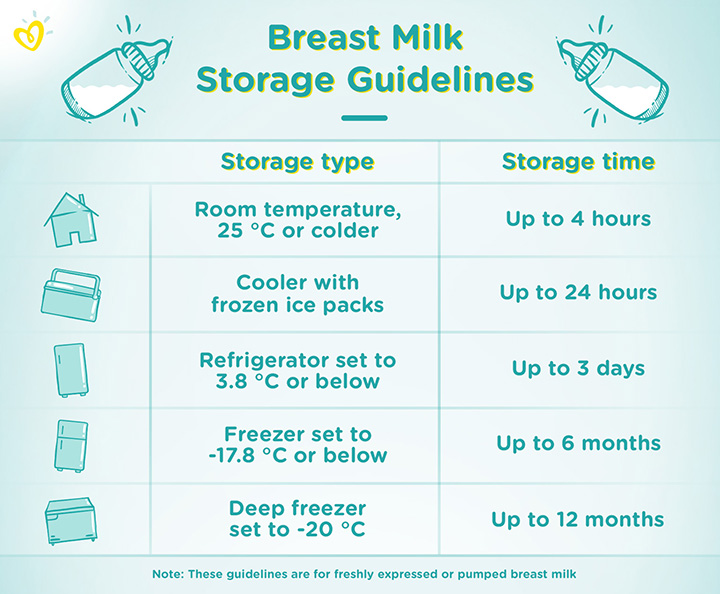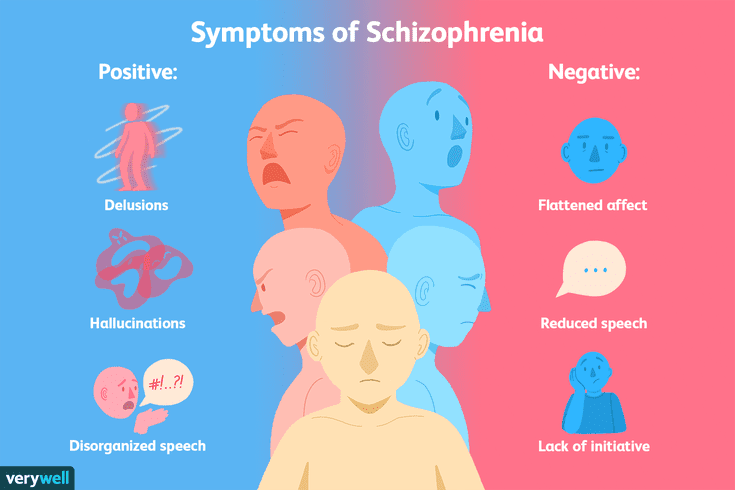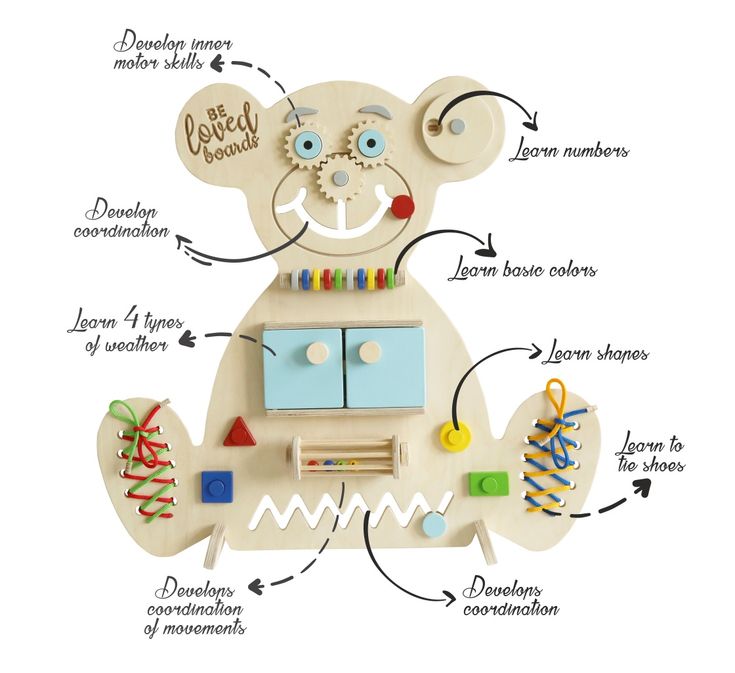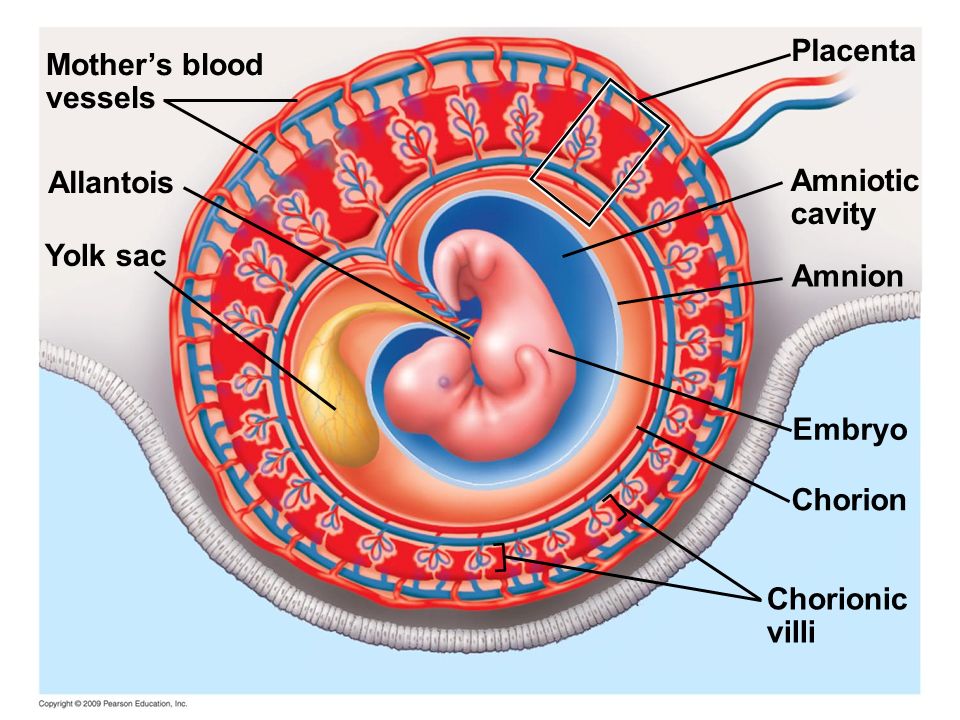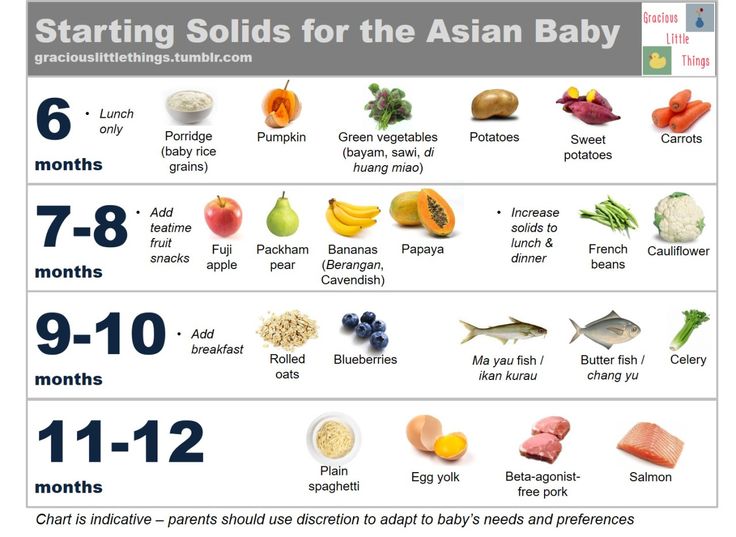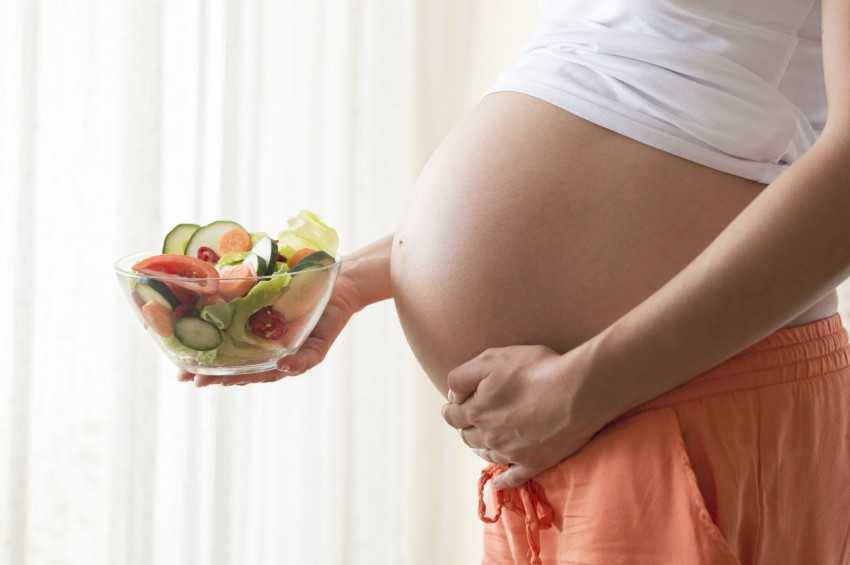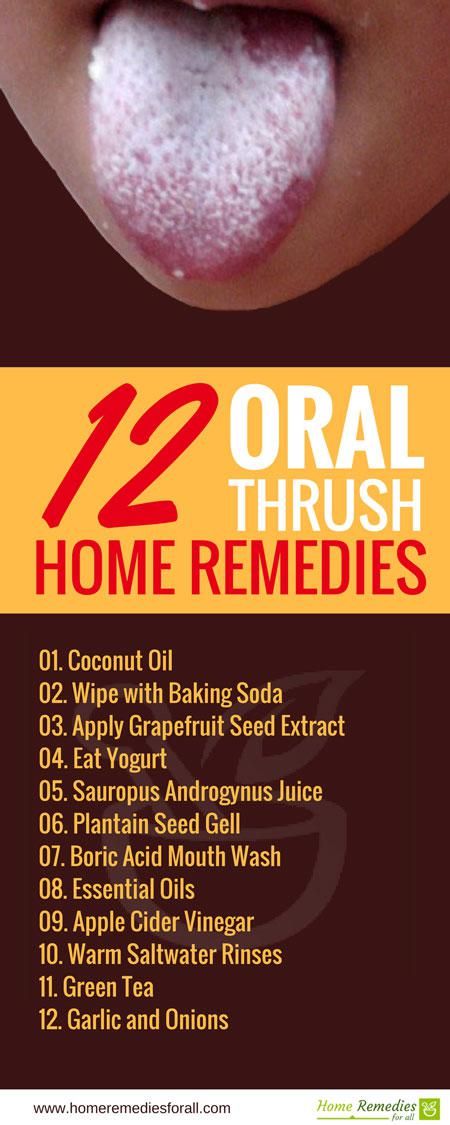Pregnancy morning sickness remedies
Daily Dose - Morning Sickness Remedies for Moms-to-Be
Your Health, Women's Health | 7 months ago
Between 50%-90% of women experience morning sickness during their pregnancies. Dr. Monica Washington with Atrium Health North Charlotte OB-GYN University explains why and offers remedies that should ease your symptoms.
Ashley Ray has a 13-year-old son and clearly remembers her uneventful pregnancy. “With him it was almost the perfect pregnancy. I experienced nothing, except my belly grew!” So, 13 years later, Ashley was expecting another easy time of it, until nearly eight weeks into her pregnancy. “It was rough! Not unbearable, but I was sick and lost about three pounds in the beginning. I couldn’t keep anything down.”
From certain foods and teas to pressure bands and changing your toothpaste, there are numerous remedies that can help ease morning sickness. Dr. Monica Washington, with Atrium Health North Charlotte OB-GYN University says morning sickness can start as early as a missed period, but typically before week nine. It usually starts in the fifth or sixth week of pregnancy and will normally subside after the first trimester at about week 13 or 14.”
It Wasn’t Just in the Morning
“Pregnancy nausea can strike any time of day, Washington says. “The term ‘morning sickness’ is a bit of a misnomer because women don't always get sick in the morning. It can happen day or night. Ashley actually was sick throughout the day.”
“Dr. Washington had me taking 100 mg of vitamin B-6 during the day, one tablet, and half a Unisom sleep aid at night. But when my nausea was really bad, I took the combo during the day. And she suggested I avoid what I call the good stuff.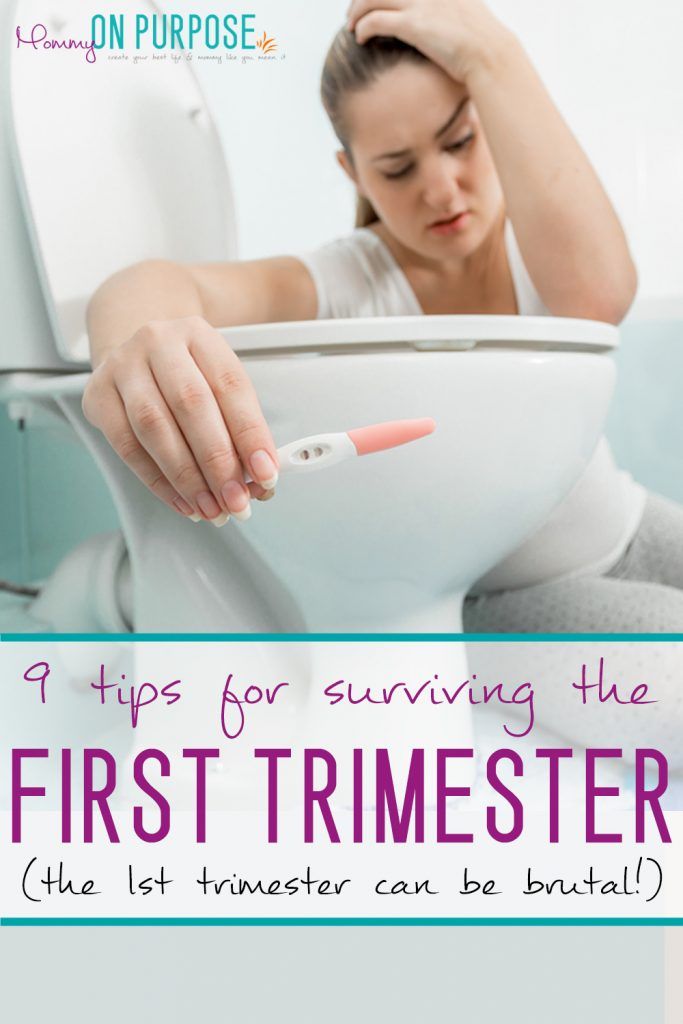 ”
”
Remedies
The good stuff? “Avoid triggers,” says Washington. “Limit or do not eat fatty or very sweet foods and eat small meals every one to two hours. You can also drink ginger teas and have peppermint candies handy to help calm your stomach.
Washington also suggests:
- Start a pre-natal vitamin as soon as you find out you are pregnant
- Purchase over-the-counter anti-nausea acupuncture wristbands or see an acupuncturist
- Eat nuts, cereals, crackers and toast.
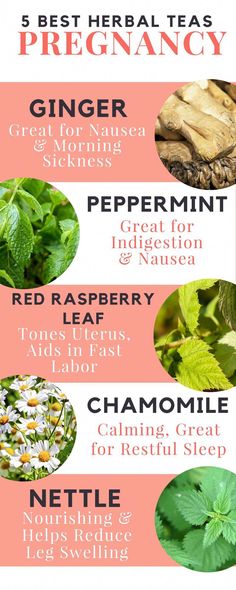 Try to eat cold foods vs. hot foods
Try to eat cold foods vs. hot foods - Switch toothpaste
- Drink cold, clear, carbonated drinks such as ginger ale, lemonade and electrolyte replacements.
- Consume beverages 30 minutes before or after solid foods to help decrease stomach movements
Severe morning sickness is when nausea and vomiting is so serious that women vomit several times a day, lose weight, and get dehydrated. “Hyperemesis gravidarum is the most common reason for admission into the hospital in the first trimester,” says Washington. “It’s a more severe form of morning sickness, but fortunately the symptoms tend to improve after the 20th week of pregnancy. See a doctor if you are experiencing weakness, dehydration and uncontrolled vomiting.”
“Hyperemesis gravidarum is the most common reason for admission into the hospital in the first trimester,” says Washington. “It’s a more severe form of morning sickness, but fortunately the symptoms tend to improve after the 20th week of pregnancy. See a doctor if you are experiencing weakness, dehydration and uncontrolled vomiting.”
Ashley’s nausea lasted about five weeks. Fortunately, she did not require hospitalization and was able to tolerate bland foods and ginger ale. Her son, Luca, was born in June 2022.
Risk Factors
The exact cause of morning sickness is unknown, but Dr. Washington says some women are predisposed:
- If nauseous when taking birth control
- Migraine sufferer
- Experience motion sickness
- Pregnant with multiples
- Expecting a baby girl
- A history of acid reflux
- Sensitive taste buds
If you are experiencing morning sickness, talk to your provider. Our Women's Care locations have an on-call nurse line to provide convenient care and guidance. Learn more here: Women's Health | OBGYN & Maternity Care | Atrium Health
Our Women's Care locations have an on-call nurse line to provide convenient care and guidance. Learn more here: Women's Health | OBGYN & Maternity Care | Atrium Health
Best Morning Sickness Remedies Of 2023 – Forbes Health
Table of Contents
- The Best Remedies for Morning Sickness
- Foods That Fight Nausea During Pregnancy
- Morning Sickness Medicine
- What Causes Morning Sickness?
- How Long Does Morning Sickness Last?
- When to See a Doctor
- Frequently Asked Questions
{{ tocState.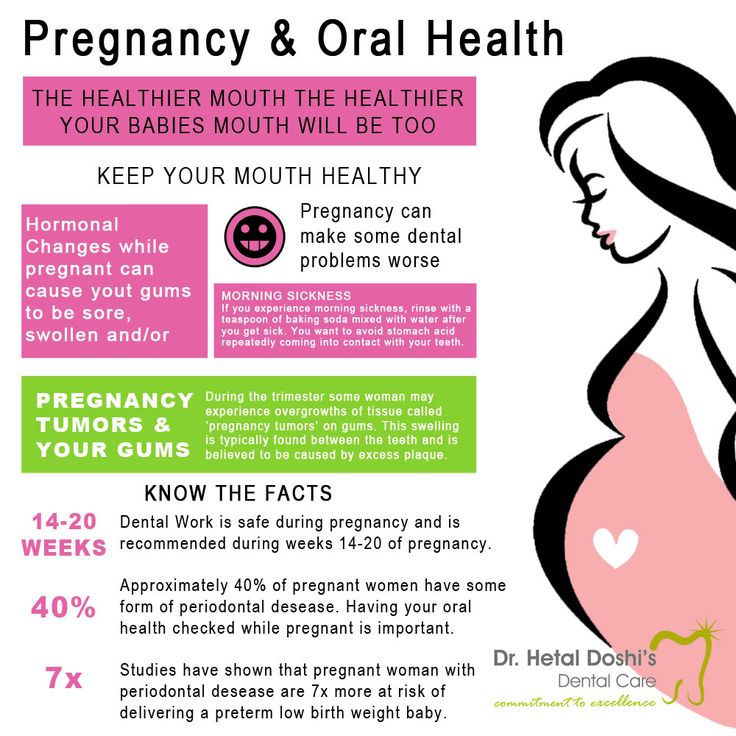 toggleTocShowMore ? 'Show more' : 'Show less' }}
toggleTocShowMore ? 'Show more' : 'Show less' }}
Morning sickness can knock the joy of pregnancy down a notch or two. It generally begins during the first six weeks of pregnancy and passes in the second trimester. The waves of nausea, often accompanied by vomiting, can be so unpleasant that some people will try any remedy to make it go away.
Luckily, there are safe remedies that really can help ease the symptoms of morning sickness, and doctors usually suggest trying the non-drug solutions first. Start by making some dietary changes like eating frequent, small meals every couple of hours and avoiding triggers like spicy or fatty foods. If that doesn’t help, consider one of the following strategies.
FEATURED PARTNER OFFER
Partner Offers feature brands who paid Forbes Health to appear at the top of our list. While this may influence where their products or services appear on our site, it in no way affects our ratings, which are based on thorough research, solid methodologies and expert advice. Our partners cannot pay us to guarantee favorable reviews of their products or services
Our partners cannot pay us to guarantee favorable reviews of their products or services
Bird&Be Prenatal Essentials For Women
- Contains 24 bioavailable nutrients that support your fertility
- Comes with 30 daily convenient packs
- Formulated by fertility specialists
- Made with Methylated Folate (plus Folic Acid), Choline and algae-based DHA
Shop Now
On Bird&Be's Website
The Best Remedies for Morning Sickness
There are a number of remedies OB-GYNs typically recommend as being safe and effective for morning sickness. Talk to your doctor, though, before taking any medications, herbal remedies and vitamin supplements.
Ginger
Ginger is an effective non-drug treatment for morning sickness and can be consumed in a number of forms, including capsules. It’s also found in ginger ale, lollipops, tea and lozenges (look for products made with real ginger instead of artificial ginger flavoring). Experts recommend taking one 250 milligram capsule every six hours, four times a day.
Experts recommend taking one 250 milligram capsule every six hours, four times a day.
“The FDA [Food & Drug Administration] cites ginger on its substances generally recognized as safe [GRAS] list,” says Rachel Adams, M.D., a Baltimore-based OB-GYN and 2021 Forbes Health Advisory Board member. “When compared with placebo, ginger decreases frequency of nausea, but not vomiting.”
Buy Ginger Ale: Available on Amazon
Crackers
Crackers are low-cost, taste good and are recommended to help ease morning sickness by the March of Dimes, an organization dedicated to the health of mothers and babies. Bland varieties in particular are typically tolerated best.
Try eating some in the morning before you get out of bed, suggests the American College of Obstetricians and Gynecologists (ACOG). It might also help to snack on crackers throughout the day, as well as nuts or fruit.
However, crackers can be high in salt, so keep an eye on your sodium intake. The daily recommended amount of sodium is 2,300 milligrams for healthy women. One Nabisco saltine cracker contains about 135 milligrams of sodium.
One Nabisco saltine cracker contains about 135 milligrams of sodium.
Buy Now: Available on Amazon
Acupressure Wrist Bands
You don’t have to swallow or drink this remedy—you simply wear it around your wrist. Touted for relieving sea-sickness, these wristbands have been shown to reduce nausea and vomiting among pregnant people. They work by gently stimulating an acupressure point on the inside of the wrist, which may ease nausea.
“Studies looked at [wearing an acupressure wristband] 10 minutes a day, four times daily,” says Dr. Adams. “Other times can be for two to three minutes, several times a day. Sea-Band is the brand commonly used in the studies.”
There’s no harm in trying an acupressure wristband. “Evidence [that wristbands alleviate morning sickness] is mixed,” says Keren Lerner, M.D., an OB-GYN at Cedars-Sinai Hospital in Los Angeles. But they cause no adverse effects.
Buy Now: Available on Amazon
Acupuncture
Acupuncture is a treatment based on ancient Chinese medicine that works to unblock energy pathways in the body called meridians. An acupuncturist inserts tiny thin needles into your skin at specific points to treat and prevent certain conditions.
An acupuncturist inserts tiny thin needles into your skin at specific points to treat and prevent certain conditions.
An Australian study of women in early pregnancy found those who received acupuncture treatments for four weeks experienced less nausea and dry retching than women who didn’t receive acupuncture treatments[1]Smith C, Crowther C, Beilby J. Acupuncture to treat nausea and vomiting in early pregnancy: a randomized controlled trial. Birth. 2002 Mar;29(1):1-9. . And acupuncture is safe, says Dr. Lerner.
“Many patients report improvement in symptoms, but that the improvement may be temporary until [the] next session,” she says.
Ask your healthcare provider to help you find an acupuncturist who is trained in working with pregnant people. Additionally, look for an acupuncturist with credentials—most states require a license, certification or registration to practice acupuncture, according to the National Center for Complementary and Integrative Health. Education, training standards and requirements for obtaining these depend on the state, but a license indicates the practitioner meets standards of knowledge and use of acupuncture.
Education, training standards and requirements for obtaining these depend on the state, but a license indicates the practitioner meets standards of knowledge and use of acupuncture.
Buy Acupuncture Mat: Available on Amazon
Vitamin B6 and Doxylamine
Vitamin B6 (pyridoxine) is safe and easy to find in pharmacies or grocery stores, and can help ease nausea and vomiting, according to ACOG.
“Prevention is key,” says Dr. Adams. “Starting B6 prior to onset of symptoms, and especially one month prior to pregnancy—in a prenatal vitamin—has been shown to decrease the incidence and severity of [nausea and vomiting] of pregnancy.”
Doxylamine, a medication found in over-the-counter sleep aids, can be added if vitamin B6 alone doesn’t help symptoms. It’s an antihistamine, meaning it blocks certain chemicals in the body that cause nausea.
Whether you take either by itself or both together, these two drugs are safe to take during pregnancy and have no harmful effects on the fetus, states ACOG.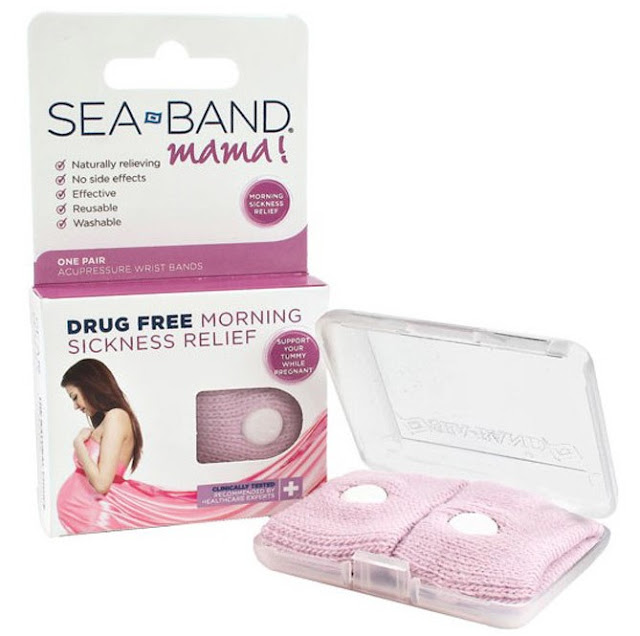 Your doctor can prescribe a drug that combines vitamin B6 and doxylamine.
Your doctor can prescribe a drug that combines vitamin B6 and doxylamine.
If you’re taking B6 alone, take 10 to 25 milligrams every six to eight hours, says Dr. Adams, who adds that the maximum dose of vitamin B6 in pregnancy is 200 milligrams a day. “In combination with doxylamine is Diclegis [a prescription medication], which is 10 milligrams of B6 and 10 milligrams of doxylamine.” You can take this nightly, and may increase to up to four times daily, she says. Another form is Bonjesta, which contains 20 milligrams of B6 and 20 milligrams of doxylamine. You can take up to two tablets daily, she says.
Foods That Fight Nausea During Pregnancy
If you’re experiencing nausea and struggling to keep food down, ACOG advises trying bland foods, specifically the BRATT diet (bananas, rice, applesauce, toast and tea). Ultimately, they suggest finding any food that sounds appealing to you and that you are able to keep down.
Experts also recommend consuming smaller amounts of carbohydrates every half hour such as crackers, pasta, rice, bagels, dry toast or breakfast cereal.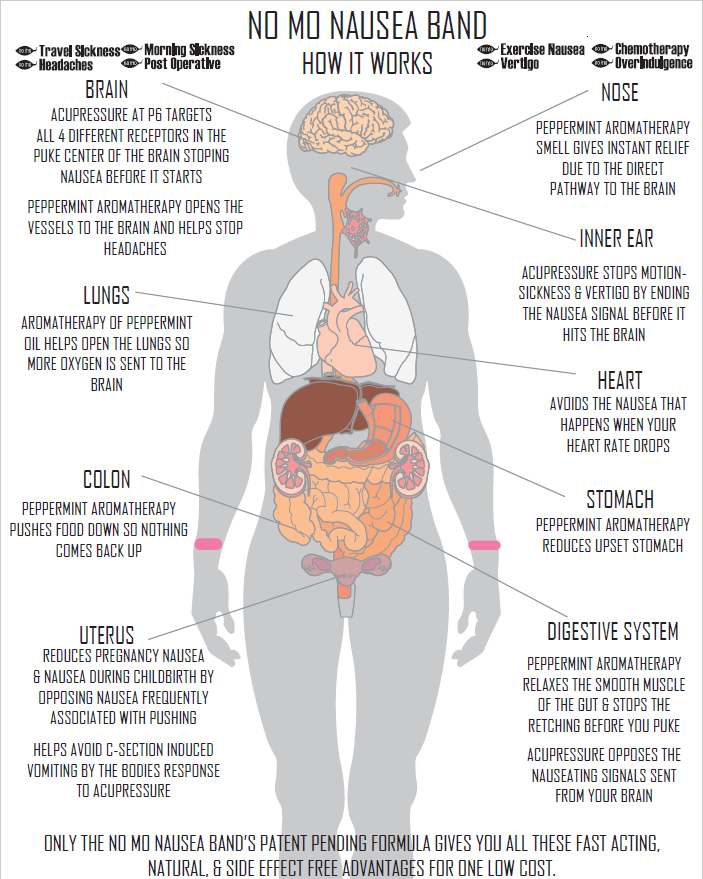 This is because carbohydrates have a lower risk of upsetting the stomach than some other foods.
This is because carbohydrates have a lower risk of upsetting the stomach than some other foods.
Ginger is the only non-drug remedy recommended by ACOG to alleviate nausea. Foods and drinks containing ginger may provide relief for some people, but check with your doctor or pharmacist before taking a ginger supplement.
Avoid any foods or smells that make you feel ill and of course, be sure to always drink plenty of water.
Morning Sickness Medicine
If your pregnancy-related nausea and vomiting are not improving with dietary or lifestyle changes, there are a few medications that may help.
Over-the-Counter Morning Sickness Medicines
ACOG recommends vitamin B6 as the over-the-counter medication to try first. If that isn’t enough, they suggest adding doxylamine, an antihistamine that is found in over-the-counter sleep aids aimed at treating short-term insomnia.
Prescription Medicines for Morning Sickness
There is a prescription drug that combines vitamin B6 and doxylamine sold under the brand names Bonjesta and Diclegis.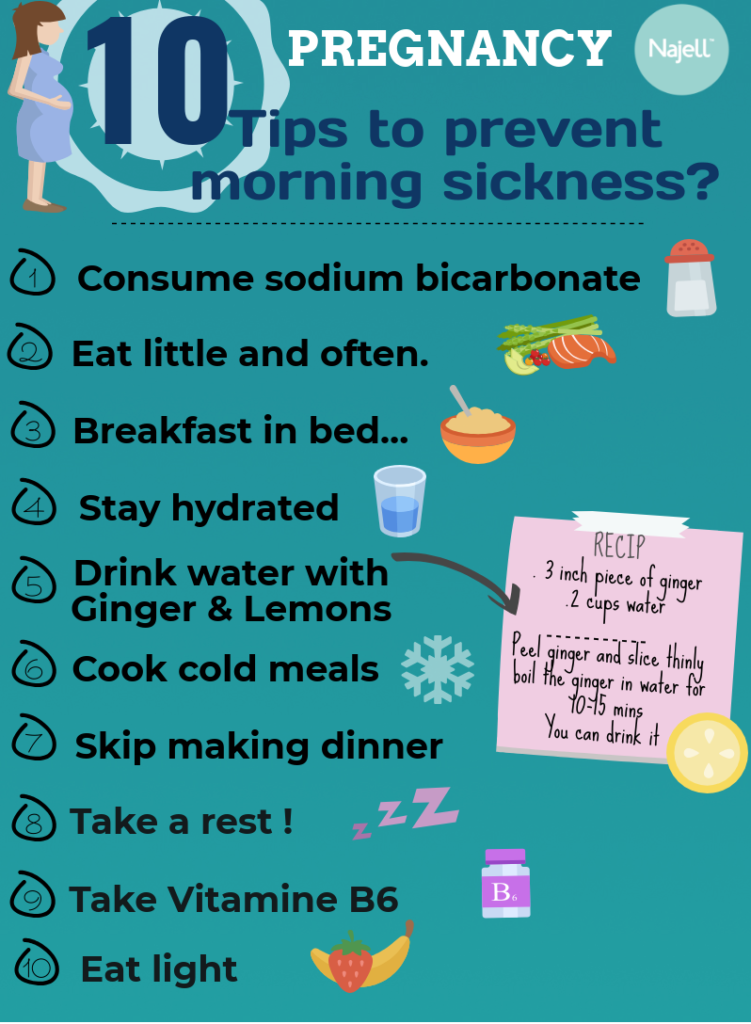 According to ACOG, both of these ingredients are safe for use during pregnancy and are not harmful to the developing fetus.
According to ACOG, both of these ingredients are safe for use during pregnancy and are not harmful to the developing fetus.
What Causes Morning Sickness?
Nausea and vomiting due to pregnancy (morning sickness) is a normal and common pregnancy symptom—although researchers still aren’t completely sure what causes it.
Morning sickness usually begins before nine weeks of pregnancy, often by six weeks along, and is not typically harmful to the fetus. For most people, it stops around 14 weeks, but for a select few , it can last for the entire pregnancy. Hormonal changes are the likely culprit of morning sickness in most pregnant people, but there are some risk factors that make you more likely to experience it. They include:
- A pregnancy of multiples, twins or higher order
- You’ve experienced morning sickness in prior pregnancies
- You are prone to motion sickness
- A history of migraines
- Genetics––morning sickness can run in the family
- A BMI of 30 or higher
- Being pregnant for the first time
How Long Does Morning Sickness Last?
For most people, morning sickness begins before the nine-week mark and is gone by about 14 weeks. For some, it can last several weeks or months and for a small number of people, it can last the entire pregnancy.
For some, it can last several weeks or months and for a small number of people, it can last the entire pregnancy.
You May Also Be Interested In Products For Pregnancy From Our Featured Partner
Ritual Essential Prenatal Multivitamin
Learn More
On Ritual's Website
Cost
$0.65
per capsule
Features
Gluten Free, Major Allergen Free, Vegan-friendly, Non-GMO
Key Nutrients
Iron, Vitamin D, Magnesium, Folate, Iodine
Ritual Protein Daily Shake Pregnancy & Postpartum
Shop Now
On Ritual's Website
Cost
$2.63
per serving
Protein Per Serving
20 grams of plant-based protein
Features
Non-GMO, Gluten Free, Major Allergen Free, Vegan Friendly
Ritual Essential Duo Pregnancy
Learn More
On Ritual's Website
Cost
$64
includes prenatal multivitamin bottle and pregnancy and postpartum protein bag
Features
Gluten Free, Major Allergen Free, Vegan-friendly, Non-GMO
(Note: Product details and prices are accurate as of publication and are subject to change. )
)
When to See a Doctor
When it comes to food, everyone is different. “In general, I tell patients who are struggling with nausea in pregnancy to eat and drink whatever sounds good and that they are able to keep down,” says Kelly Culwell, M.D., a 2021 Forbes Health Advisory Board member and OB-GYN. “But if [a patient] is extremely limited in what she can eat for the long term, I might talk to her about ways we can ensure she is getting adequate nutrition, like supplement shakes.”
If a person’s vomiting becomes constant and severe—a condition called hyperemesis gravidarum—they should contact their doctor right away to avoid developing other health problems.
“Some women can experience ‘morning sickness,’ which can also be ‘all day sickness’ for some unlucky women throughout their pregnancy,” says Dr. Culwell. “As long as you are able to keep liquids and food down for most of the day, there is usually nothing to worry about.”
“Definitely talk to your doctor about your symptoms at your routine visits because there are treatments available,” she adds.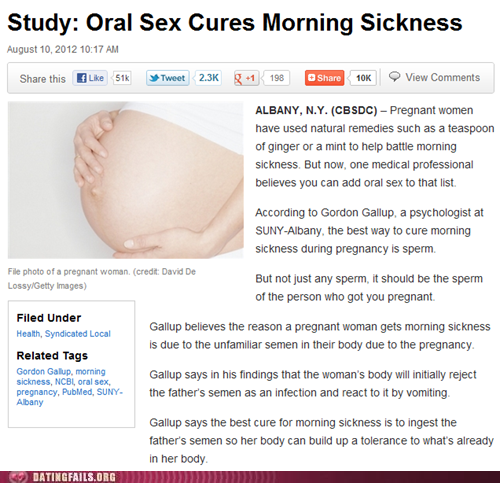 If your nausea and vomiting are so severe that you are not able to keep down liquids, you should contact your doctor right away because you may need more intensive treatment so you do not become dehydrated.
If your nausea and vomiting are so severe that you are not able to keep down liquids, you should contact your doctor right away because you may need more intensive treatment so you do not become dehydrated.
Frequently Asked Questions
When does morning sickness start?
Morning sickness usually starts before nine weeks of pregnancy and often, by six weeks.
When does morning sickness peak?
Morning sickness typically peaks in severity at around nine weeks.
What's the difference between nausea and morning sickness?
Morning sickness is nausea caused by pregnancy.
How to get rid of morning sickness during pregnancy?
Morning sickness often occurs during pregnancy. This is usually associated with an increase in estrogen levels, a decrease in blood glucose levels, and an increased sensitivity to odors. In most cases, morning sickness stops by the end of the first trimester of pregnancy. In order to minimize this unpleasant symptom, the following rules can be observed:
In most cases, morning sickness stops by the end of the first trimester of pregnancy. In order to minimize this unpleasant symptom, the following rules can be observed:
1. Get more rest. Make sure you get quality sleep throughout the night. You can also get some sleep during the day and avoid doing strenuous activities after eating.
2. Do not rush to get out of bed abruptly after waking up.
3. Avoid certain foods. Avoid fatty and/or spicy foods and avoid caffeine.
4. Eat small meals. It is important that there is always a small amount of food in the stomach, this will reduce the risk of developing nausea or reduce the severity of symptoms, if any. You can eat some salty crackers or protein foods before you get out of bed in the morning. For breakfast, you can eat cold applesauce, a pear, a banana, or any citrus fruits to reduce your hunger. Potassium-rich fruits can help prevent morning sickness during pregnancy. At night, you can eat something high in protein, this will help normalize blood glucose levels.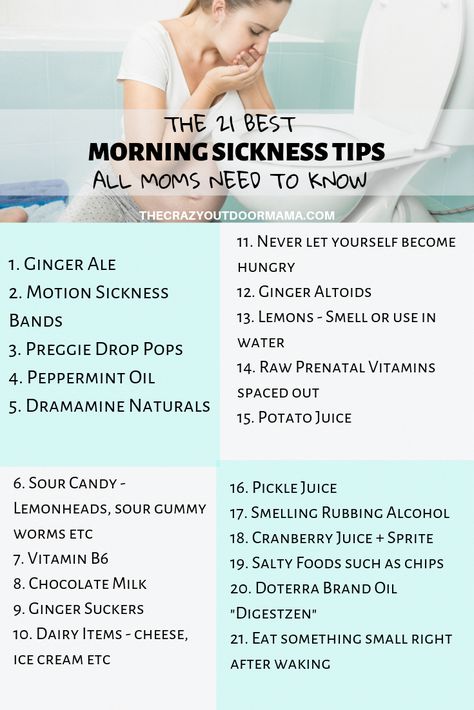
5. Turn off the computer. Fast, almost imperceptible flickering of a computer monitor can cause toxicosis.
6. Be physically active.
7. Drink plenty of fluids. The more dehydrated the body is, the more nausea will be felt. If drinking water is hard, try adding apple cider vinegar and honey. Moreover, the colder the drink, the easier it will be to consume. Sucking on ice cubes made from water or fruit juice is also a good method for reducing nausea.
8. Eat ginger. Adding a piece of raw ginger to water or tea, or drinking a cold ginger drink can help soothe the stomach and eliminate nausea.
9. Engage in mental activity. It is important to try to distract yourself from the feeling of nausea, for this you can read a book, solve puzzles, watch TV or take a short walk outside.
10. Wear loose and comfortable clothing. Clothing that restricts movement or tight clothing can aggravate the symptoms of morning sickness.
11. Consider replacing prenatal vitamins with baby vitamins, they tend to be easier to digest.
12. Avoid irritating odors. Since pregnant women are often noted for increased sensitivity to odors, strong odors, such as perfume, can trigger the development of nausea. In turn, the smell of lemon or rosemary extract will help calm the stomach.
13. Avoid triggers - factors that provoke the development of an attack of nausea.
14. Eliminate reflux if present. Antacids can help with this. Consult your doctor before taking them.
15. Talk to your doctor about taking iron supplements or iron-containing vitamins. There is evidence that the use of iron supplements can provoke the development of nausea in pregnant women.
16. Do acupressure. Pressing on certain points on the body to control nausea can help reduce or eliminate this symptom.
According to www.medicalnewstoday.com
Fighting toxicosis - articles from the specialists of the clinic "Mother and Child"
Alexandrova Anna Evgenievna
Embryologist
Clinic "Mother and Child" South-West
rest more
Very often in the first trimester, the expectant mother feels weak, drowsy, she wants to lie down to rest, and sometimes she simply does not even have the strength to move. This, of course, is not toxicosis, but if such sensations arise, then they must be indulged so as not to inadvertently provoke another attack of nausea. Get plenty of rest and do not make any sudden movements, because even if you just fail to get up from a chair, you can provoke an attack of nausea.
This, of course, is not toxicosis, but if such sensations arise, then they must be indulged so as not to inadvertently provoke another attack of nausea. Get plenty of rest and do not make any sudden movements, because even if you just fail to get up from a chair, you can provoke an attack of nausea.
Sleep with the windows open: the air in the bedroom should be fresh and cool. Go to bed on time, do not sit at midnight in front of the TV or at the computer, eliminate all irritating factors: an uncomfortable mattress, blanket, pillow, hard bedding - lack of sleep can respond with morning sickness.
Eat right
Eat in fractions, 5-6 times a day, or even more often, and always in small portions. When you wake up, don't get out of bed right away. One of the most effective methods against toxicosis is breakfast in bed. In the evening, put crackers, yogurt, or any product that you can tolerate well next to your bed. Eat it before you get up, and then lie down for a while.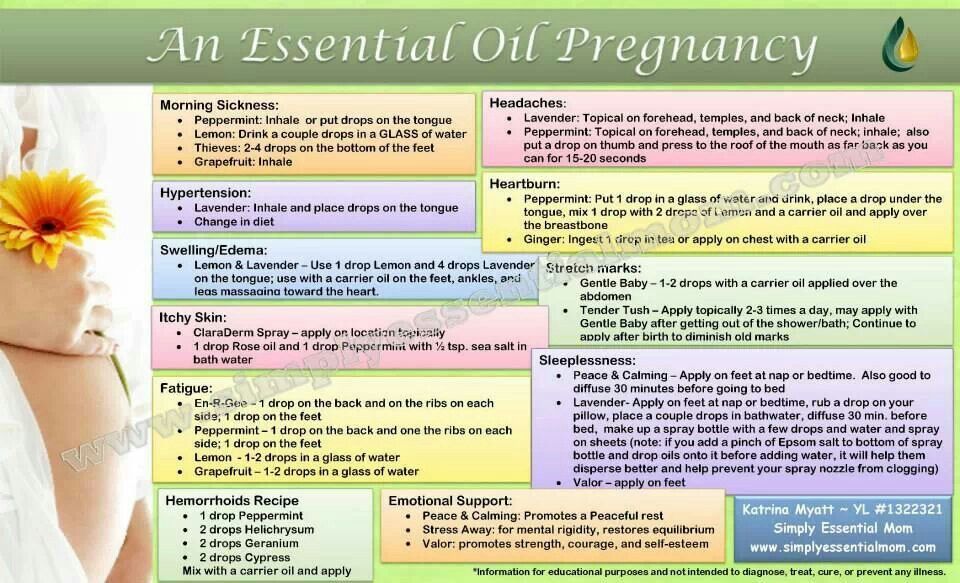 Most likely, morning sickness will either not appear at all, or will be very weak.
Most likely, morning sickness will either not appear at all, or will be very weak.
Usually, in case of toxicosis, it is not recommended to eat fatty, smoked, salty, pickled, drink soda (the usual set of food hazards). But it is likely that some not very healthy product will now be well tolerated, and something from healthy food, on the contrary, will cause nausea. "Pregnant whims" - a cake with herring or pineapples at night - these are the requests of the body that it needs one or another component in food. For example, the desire to chew chalk is a sign of calcium deficiency. So eat what you like and what you want, within reason, of course. And if you don’t feel like something, even if this product is extremely useful and necessary, don’t eat it. If you feel sick from some dish, it means that the body signals you: I don’t need this now!
drink more often
Toxicosis may not be limited to nausea, some may also vomit. This means fluid is lost. Therefore, between meals, drink more often: a sip or two of mineral water or tea with lemon will help to cope with nausea and replenish lost fluids. But drink in small sips. Also, you should not drink food and you should give up soups for a while - a large amount of food drunk and eaten, on the contrary, only provokes nausea and vomiting.
But drink in small sips. Also, you should not drink food and you should give up soups for a while - a large amount of food drunk and eaten, on the contrary, only provokes nausea and vomiting.
breathe fresh air
Outdoor walks are good for everyone, but especially for toxicosis. Firstly, when walking, the blood of the expectant mother and baby is saturated with oxygen, which is very important for health, and secondly, walking calms the nervous system. Together, this helps to reduce the unpleasant symptoms of toxicosis. You need to walk at least two hours a day - but not just along the street, but in the place where the air is really fresh: in the forest, park, square, and best of all outside the city. Before you go out, think over the route: go away from gas-polluted highways, street cafes, food stalls and other "fragrant" places.
exclude fragrances
Taste and smell preferences change during the first trimester. Now even your favorite perfumes can cause nausea, headaches and allergic reactions. Therefore, put away all fragrant cosmetics that irritate you: perfumes, deodorants, creams, and so on. You will have to stop using your favorite perfume for both your husband and loved ones. Explain to others that this is not a whim, but a temporary measure, very soon everything will return to normal.
Therefore, put away all fragrant cosmetics that irritate you: perfumes, deodorants, creams, and so on. You will have to stop using your favorite perfume for both your husband and loved ones. Explain to others that this is not a whim, but a temporary measure, very soon everything will return to normal.
And do not worry that now you will be left without your usual beauty products. Both the cosmetic store and the pharmacy are full of different creams, tonics, shampoos without fragrance or with a minimal smell.
work with yourself
Psychologists believe that the cause of toxicosis is not only in hormonal changes, but also in the psychological state of a woman. The more a woman experiences, the more anxieties and fears she has, the more pronounced toxicosis can be. Ideally, it is better to limit yourself during pregnancy from any stress. Of course, it’s not always possible to eliminate nervous work or crowding in public transport, but watch less TV, don’t read negative news and various pregnant “horror stories” on the Internet, and don’t react to minor or even major everyday troubles everyone can do.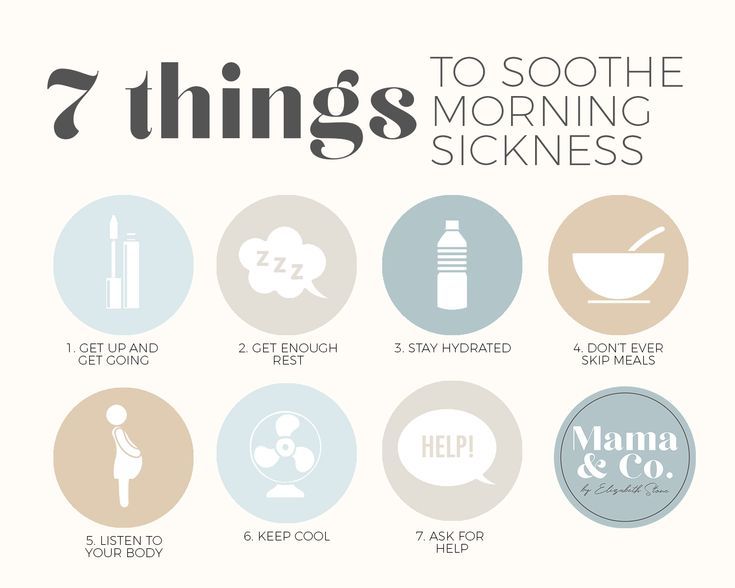 Therefore, if you are worried about toxicosis, create your own comfortable world during pregnancy. If you can’t cope on your own, contact a specialist (psychologist). Toxicosis is really well treated with psychotherapy. The main thing is that the expectant mother should want to get rid of her own anxiety.
Therefore, if you are worried about toxicosis, create your own comfortable world during pregnancy. If you can’t cope on your own, contact a specialist (psychologist). Toxicosis is really well treated with psychotherapy. The main thing is that the expectant mother should want to get rid of her own anxiety.
No matter how unpleasant toxicosis is, it does not last forever. It is necessary to suffer until the beginning or (less often) the middle of the II trimester. And very soon all the unpleasant symptoms of toxicosis will remain in the past!
Make an appointment
to the doctor - Alexandrova Anna Evgenievna
Clinic "Mother and Child" South-West
ICSIECO
By clicking on the send button, I consent to the processing of personal data
Attention! Prices for services in different clinics may vary. To clarify the current cost, select clinic
The administration of the clinic takes all measures to update the prices for programs in a timely manner, however, in order to avoid possible misunderstandings, we recommend that you clarify the cost of services by phone / with the managers of the clinic
Clinical Hospital MD GROUPClinical Hospital Lapino-1 "Mother and Child"Clinic KG "Lapino" in Odintsovo (branch)Clinic "Mother and Child" Khodynskoye PoleClinic "Mother and Child" KuntsevoClinic "Mother and Child" Savelovskaya Clinic "Mother and Child" » South-WestClinic "Mother and Child" NovogireevoClinic "Mother and Child" Lefortovo
All directionsSpecialist consultations (adults)Specialist consultations (children)Laboratory of molecular geneticsGeneral clinical studiesTreatment roomTelemedicine for adultsTherapeutic studiesUltrasound examinations for adults
01.

